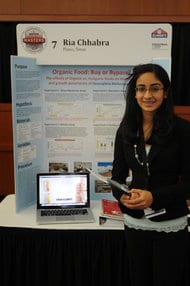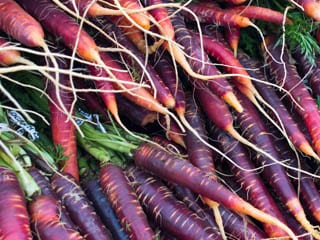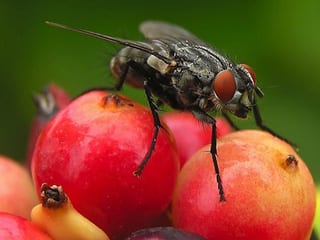New York Times reporter Tara Parker-Pope has covered research carried out in the fruit fly lab of SMU biologist Johannes H. Bauer.
The article on the New York Times Wellness blog covers the research of Bauer and Plano, Texas, high school student Ria Chhabra. “Is Organic Better? Ask a Fruit Fly” appeared April 17.
Bauer, an assistant professor in SMU’s Department of Biological Sciences, mentored Chhabra in her research to examine whether there would be health differences to fruit flies fed an organic diet or a nonorganic diet. Chhabra’s study found that flies fed an organic diet fared better on important health tests, particularly fertility and longevity.
Read the New York Times article.
EXCERPT:
Tara Parker-Pope
New York Times
When Ria Chhabra, a middle school student near Dallas, heard her parents arguing about the value of organic foods, she was inspired to create a science fair project to try to resolve the debate.Three years later, Ria’s exploration of fruit flies and organic foods has not only raised some provocative questions about the health benefits of organic eating, it has also earned the 16-year-old top honors in a national science competition, publication in a respected scientific journal and university laboratory privileges normally reserved for graduate students.
The research, titled “Organically Grown Food Provides Health Benefits to Drosophila melanogaster,” tracked the effects of organic and conventional diets on the health of fruit flies. By nearly every measure, including fertility, stress resistance and longevity, flies that fed on organic bananas and potatoes fared better than those who dined on conventionally raised produce.
While the results can’t be directly extrapolated to human health, the research nonetheless paves the way for additional studies on the relative health benefits of organic versus conventionally grown foods. Fruit fly models are often used in research because their short life span allows scientists to evaluate a number of basic biological effects over a relatively brief period of time, and the results provide clues for better understanding disease and biological processes in humans.
Read the New York Times article.
Follow SMUResearch.com on Twitter.
For more information, www.smuresearch.com.
SMU is a nationally ranked private university in Dallas founded 100 years ago. Today, SMU enrolls nearly 11,000 students who benefit from the academic opportunities and international reach of seven degree-granting schools. For more information see www.smu.edu.
SMU has an uplink facility located on campus for live TV, radio, or online interviews. To speak with an SMU expert or book an SMU guest in the studio, call SMU News & Communications at 214-768-7650.


 Musicians who learn a new melody demonstrate enhanced skill after a night’s sleep
Musicians who learn a new melody demonstrate enhanced skill after a night’s sleep
 Fruit flies fed organic diets are healthier than flies fed nonorganic diets, study finds
Fruit flies fed organic diets are healthier than flies fed nonorganic diets, study finds Center for Creative Leadership to study innovative learning method of SMU Lyle School of Engineering
Center for Creative Leadership to study innovative learning method of SMU Lyle School of Engineering Parenting program tackles child abuse and neglect among formerly homeless families
Parenting program tackles child abuse and neglect among formerly homeless families White dwarf supernovae are discovered in Virgo Cluster galaxy and in sky area “anonymous”
White dwarf supernovae are discovered in Virgo Cluster galaxy and in sky area “anonymous” Hiding in plain sight: How invisibility saved New Mexico’s Jicarilla Apache
Hiding in plain sight: How invisibility saved New Mexico’s Jicarilla Apache Study: Most Texas ISDs that are teaching the Bible are skirting 2007 state law
Study: Most Texas ISDs that are teaching the Bible are skirting 2007 state law

